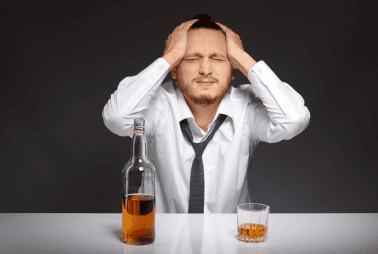Detoxing from alcohol is a crucial first step on the path to recovery, especially for individuals struggling with long-term alcohol abuse. However, the process of alcohol withdrawal can vary significantly based on factors such as the severity of dependence, overall health, duration of use, and whether other substances are involved. Understanding the timeline, potential risks, and how withdrawal symptoms manifest can help you prepare both mentally and physically for the journey ahead.
Here at TRUST SoCal we know the severity that can come alone with alcohol detox, and are ready to support you every step of the way.
What is Detox in Alcohol Withdrawal Treatment?
When someone with alcohol dependence stops drinking, the body and brain—which have become accustomed to functioning with alcohol—react strongly to its absence. This reaction is known as alcohol withdrawal syndrome (AWS), a potentially serious condition that includes a range of alcohol withdrawal symptoms such as anxiety, insomnia, irritability, nausea, tremors, rapid heart rate, and alcohol cravings. For some individuals, these symptoms can escalate into severe withdrawal symptoms, including seizures, hallucinations, or delirium tremens (DTs), which require immediate medical attention.
Because of these risks, professional alcohol withdrawal treatment is strongly recommended. Medically supervised detox programs are equipped to manage severe symptoms, monitor vital signs, and administer medications that ease discomfort and reduce the risk of complications.
According to the ASAM Clinical Practice Guidelines on Alcohol Withdrawal Syndrome for alcohol use disorder, individuals undergoing alcohol detox benefit significantly from structured care, especially when there’s a history of heavy drinking, co-occurring health conditions, or prior withdrawal complications. These programs also provide supportive care, ensuring that the early stages of recovery are as safe and manageable as possible.
Whether you’re experiencing mild discomfort or more severe withdrawal symptoms, recognizing the signs and seeking professional help is essential. Detox is not just about stopping alcohol use—it’s about safely resetting your body so you can begin the next stage of healing with a clear mind and a supported foundation.

Alcohol Withdrawal Timeline
While the detox experience varies for each individual, understanding the general alcohol withdrawal timeline can provide clarity and preparation for what lies ahead. Individuals with alcohol use disorder may experience withdrawal symptoms ranging from mild to life-threatening, depending on their history of alcohol use, overall health, and the severity of alcohol addiction. Withdrawal occurs as the central nervous system—previously suppressed by chronic alcohol intake—rebounds and struggles to recalibrate without the substance.
Below is a typical breakdown of the stages of alcohol withdrawal symptoms and what you can expect:
6–12 Hours After Last Alcohol Use: Alcohol Withdrawal Symptoms Start
This initial phase marks the early onset of physical withdrawal symptoms. Individuals may begin to experience withdrawal symptoms ranging from mild symptoms to moderate such as:
- Anxiety or restlessness
- Nausea or gastrointestinal discomfort
- Headaches
- Alcohol Cravings
- Mood Swings
- Sweating and shakiness
- Tremors
- Insomnia
Even at this early stage, it’s essential to monitor symptoms of alcohol withdrawal, especially if the individual has a history of heavy alcohol use or alcohol addiction.
12–24 Hours: Symptom Progression and Health Conditions
As the body continues to detox when you stop drinking, symptoms often intensify. In some cases, individuals may begin to:
- Experience hallucinations (auditory, visual, or tactile)
- Suffer from disorientation or confusion
- Develop seizures, particularly in those with a long-standing alcohol use disorder
This stage can be particularly dangerous for individuals without medical supervision and underscores the importance of professional detox care.
24–72 Hours: Peak Severity | Delerium Tremens and More
This period often represents the most acute and medically unstable phase of symptoms of alcohol withdrawal. Key symptoms may include:
- Increased heart rate and blood pressure
- Heightened agitation and irritability
- Disorientation or confusion
- High fever or excessive sweating
- Delirium tremens (DTs) — a severe, potentially fatal complication involving hallucinations, fever, and cardiovascular instability
Delirium tremens typically appear within 48 to 72 hours in those at highest risk and require immediate medical intervention from experienced medical professionals.
3–7 Days: Gradual Improvement
In most cases, moderate withdrawal symptoms begin to decline within this window. While the risk of severe complications like DTs decreases, some individuals may continue to experience mild cases of symptoms:
- Mood swings
- Sleep disturbances
- Lingering anxiety or depression
- Fatigue
Supportive care, hydration, nutrition, and alcohol withdrawal treatment protocols can help reduce withdrawal symptoms and ease recovery.
Beyond 1 Week: Post-Acute Withdrawal Syndrome (PAWS)
After the initial detox period, some individuals develop Post-Acute Withdrawal Syndrome, which can persist for weeks or even months. PAWS may involve:
- Ongoing sleep issues
- Difficulty concentrating
- Emotional instability
- Low energy or fatigue
These lingering symptoms reflect the prolonged neurochemical imbalances in the nervous system caused by chronic alcohol use and underscore the need for continued support through therapy, medication management, and lifestyle changes.

Importance of Medical Supervision with Alcohol Addiction
Alcohol withdrawal can be dangerous—and even life-threatening—especially for individuals who drink alcohol heavily or regularly over a long period of time. When a person decides to stop drinking alcohol, the body, which has adapted to the presence of alcohol, enters a state of shock, leading to a range of physical and mental symptoms.
According to the National Institute on Alcohol Abuse and Alcoholism (NIAAA), withdrawal is not only a physical process but also a neurological one, where the brain struggles to recalibrate after prolonged alcohol use.
The timing of alcohol withdrawal start varies depending on factors such as the quantity and frequency of alcohol use, metabolic rate, and overall health. For many individuals, symptoms begin within 6 to 12 hours after the last drink and may include high blood pressure, rapid heartbeat, sweating, nausea, anxiety, and insomnia.
While some people experience less severe symptoms, others may develop complications such as:
- Seizures
- Delirium tremens (DTs): A medical emergency involving confusion, hallucinations, fever, and cardiovascular instability
- Severe agitation or paranoia
- Dangerous spikes in blood pressure or heart rate
For this reason, quitting alcohol should always be done under medical supervision if dependence is present. In a controlled setting, healthcare providers can monitor vital signs, manage complications, and administer medications—such as benzodiazepines or anticonvulsants—to ease withdrawal symptoms and reduce the risk of severe outcomes.
Even individuals who experience less severe symptoms may benefit from professional support to address mental symptoms such as anxiety, depression, or irritability, which often accompany withdrawal and can trigger relapse.
At facilities like TRUST SoCal, supervised detox is considered the safest and most effective way to begin recovery from alcohol dependence. With the right care, individuals can navigate the challenges of quitting alcohol with greater comfort, safety, and long-term success.

Key Factors That Affect Alcohol Withdrawal Start | Duration and Severity:
Alcohol withdrawal doesn’t look the same for everyone. Several components—such as mental health status and drinking patterns—can influence how and when symptoms begin, how long they last, and how severe they become. Understanding these factors can help guide treatment and expectations during recovery.
Duration and intensity of alcohol use
Individuals who engage in heavy drinking—for example, consuming four or more alcoholic drinks daily or binge drinking regularly—are more likely to experience a severe form of withdrawal. The longer and more intense the alcohol use, the more time the body and brain need to stabilize during detox.
Overall physical health
Preexisting medical conditions such as liver disease, heart problems, or high blood pressure can complicate detox and prolong recovery. A weakened immune system or poor nutritional status may also impact how well a person handles withdrawal.
Presence of co-occurring mental health conditions
Anxiety, depression, PTSD, or other mental health disorders can significantly increase the psychological burden of detox. These co-occurring conditions often interact with substance abuse, making withdrawal symptoms more intense and unpredictable.
Previous detox experiences
Individuals with multiple prior detoxes may be at greater risk of kindling—a phenomenon where repeated withdrawals lead to progressively worse symptoms. A detailed medical history can help clinicians anticipate such complications and adjust care accordingly.
Use of other medications or substances
The presence of other drugs in the system—such as opioids, benzodiazepines, or stimulants—can affect how the body processes alcohol detox. Likewise, other medications prescribed for chronic conditions may influence how symptoms manifest or how treatments are administered.
Each individual’s journey through detox is unique. These risk factors can influence not only the severity of withdrawal symptoms but also the duration of the process. A thorough clinical assessment is essential to crafting a safe and effective detox plan tailored to the individual’s history, health, and needs.
Alcohol Use Disorder Support at TRUST SoCal
At TRUST SoCal, we understand that detox is not a one-size-fits-all experience. Whether an individual is dealing with mild symptoms of early-stage alcohol problems or facing the more serious consequences of chronic consumption—such as drinking four or more drinks daily—our team is equipped to handle a wide spectrum of needs. Our comprehensive detox programs are tailored to reflect the multiple factors that influence withdrawal, including medical history, co-occurring conditions, and the severity of alcohol use.
We provide care in a licensed medical facility staffed by experienced physicians, nurses, and addiction specialists. These medical professionals offer 24/7 clinical management to monitor and respond to signs of distress, such as high body temperature, rapid heartbeat, hallucinations, or seizures.
For clients experiencing mild symptoms, detox may involve nutritional support, hydration with fluids like fruit juice or electrolyte solutions, and medications to ease discomfort and stabilize mood.
Our personalized approach ensures that every client receives a detox plan that aligns with their physical condition, emotional state, and long-term recovery goals. With around-the-clock medical supervision and a compassionate team by your side, TRUST SoCal delivers the safe, supportive foundation needed to begin the journey toward lasting sobriety.

Take the First Step
If you or a loved one is considering detox, it’s critical to seek professional help to ensure the process is safe, effective, and tailored to your specific needs. At TRUST SoCal, we provide medically supervised treatment for alcohol use that is closely monitored by experienced professionals.
Our programs follow a general timeline of withdrawal, during which patients may be prescribed short term medications to reduce symptoms like anxiety, tremors, and insomnia. Our clinical team ensures that all stages of detox are managed with comfort and safety in mind. Patients are also encouraged to drink plenty of fluids—including water and hydrating beverages—to help the body flush out toxins and prevent dehydration.
Beyond medical detox, TRUST SoCal connects individuals with ongoing treatment options, including outpatient programs, therapy, and access to support groups that reinforce long-term recovery. We also help patients understand triggers that may lead them to start drinking again and develop coping strategies for life beyond detox.
Taking the first step toward sobriety is an act of courage. Contact TRUST SoCal today to learn more about our evidence-based programs and discover how we can support your recovery journey with compassion, expertise, and individualized care.
Works Cited
- Jesse, S., Bråthen, G., Ferrara, M., Keindl, M., Ben-Menachem, E., Tanasescu, R., Brodtkorb, E., Hillbom, M., Leone, M. A., & Ludolph, A. C. (2017). Alcohol withdrawal syndrome: Mechanisms, manifestations, and management. Acta Neurologica Scandinavica, 135(1), 4–16. https://doi.org/10.1111/ane.12671
- American Society of Addiction Medicine. (2020). The ASAM clinical practice guideline on alcohol withdrawal management. Journal of Addiction Medicine, 14(3S Suppl 1), 1–72. https://doi.org/10.1097/ADM.0000000000000668SAMHS
- National Institute on Alcohol Abuse and Alcoholism. (2025). Neuroscience: The brain in addiction and recovery. https://www.niaaa.nih.gov/health-professionals-communities/core-resource-on-alcohol/neuroscience-brain-addiction-and-recovery







